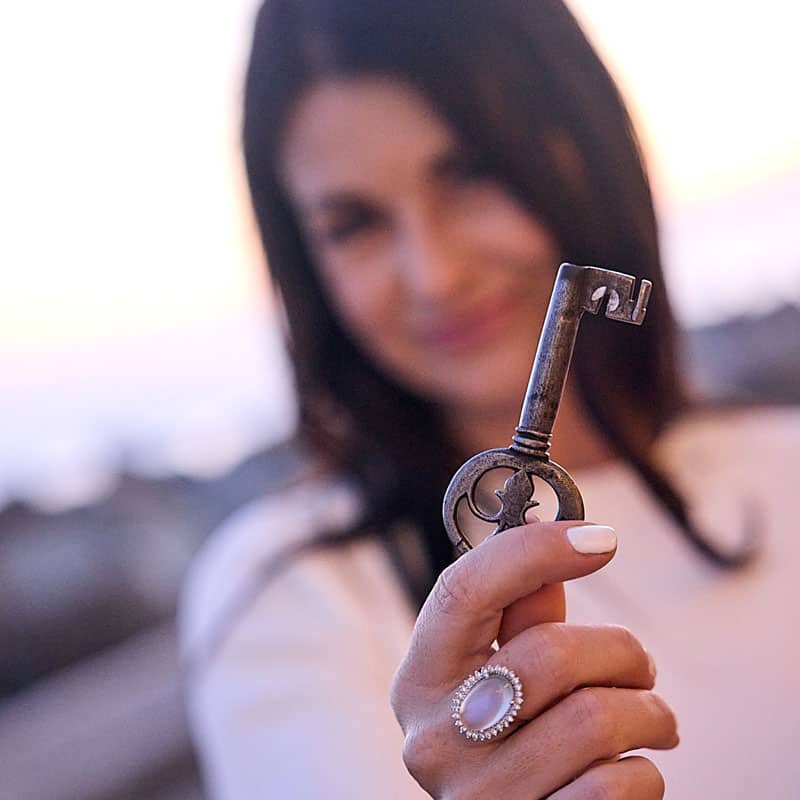What Do You Like About the Way You Look?

What do you like about the way you look?
As an eating disorder expert, I often ask people that very question. More often than not, it’s followed by a long pause. After a few awkward moments, I may get a response or two about their eyes, legs, smile, or hair. But more frequently, it is eerily quiet as people sift through their own negative evaluations of their appearance to try to find something they like.
This is the sad truth about body image in the United States: More people are dissatisfied with the way they look than there are people who are satisfied.
The truth is that we all have a body image—a way of relating to ourselves as a physical person in a living, breathing body. This image includes how we feel about our appearance, how we perceive and experience sensations in our body, what we think about our physical selves, and what we believe our appearance means about us as human beings. Creating and maintaining a positive view of yourself and your appearance is a part of loving and accepting yourself as a person.
Why is our body image so negative?
Living in mainstream American culture makes it difficult to maintain a positive body image. Western values convey the message that physical appearance is central to your value as a person.
In addition, the ideal appearance is very specific—it is a thin, fit, and youthful physique that is impossible to maintain over time. This creates a tremendous amount of pressure to try to look like a standard that is unrealistic, unachievable, and impossible to maintain. It becomes your responsibility to attempt to meet this standard, and much of our marketing aims to make you feel bad so you will buy products or diet to achieve it!
Taken together, our sociocultural values and body ideals place profound emphasis on beauty and physical appearance. Staying positive when we don’t look like the perfect person (who also doesn’t look that way because of airbrushing, editing, surgery, and beauty products) makes us feel bad and keeps us on an endless journey to attain an ideal body that we will never meet. In essence, our body becomes “a project to fix” instead of a part of us to embrace, appreciate, and love.
Here are 5 tips to improve your body image in an age of dissatisfaction:
1. Challenge negative self-talk. Anytime you notice you’re being self-critical of your body, pause. Stop being judgmental towards yourself or others.
2. Reduce exposure to people and media that make you feel bad. If you notice that looking at fashion media or being around certain people who are highly critical of their bodies makes you feel worse, it’s perfectly healthy to set a boundary and limit your exposure.
3. Practice complimenting and appreciating your appearance. Take time to notice all of the wonderful aspects of your body and your appearance. In addition, remember to build your self-esteem around aspects of yourself that have nothing to do with your looks.
4. Try not to compare yourself to others. Focus on yourself without comparing your looks to models, media images, or even friends and family who you think represent “the best” because it often will make you feel worse about yourself.
5. Focus on health—not weight. The journey of life is a long one. The goal really is to be as healthy as possible, but we’re very focused on weight in this cultural context. If you want to use a scale to track your weight, don’t do it more than once a week. If it’s very triggering, perhaps don’t do it at all for now until you feel unaffected by the number that appears.
The naked truth
Developing a positive body image in mainstream Western cultures can be very difficult because we’re surrounded by unhealthy messages. Yet, developing a positive relationship with yourself includes becoming accepting of and working with your physical appearance. Challenge yourself to focus on what you do like about your appearance and not fixate on what you don’t like.
In honor of National Eating Disorder Awareness Week, spread the word about healthy body image!
Copyright Cortney S. Warren, Ph.D., ABPP
Note: This content is only for informational and educational purposes and should not be considered therapy or any form of treatment. I cannot respond to personal requests for advice over the internet. Best on your continued journey.
Image Source: Nicola Katie / Getty Images Signature
TO READ MORE OF DR. CORTNEY'S WORK, SUBSCRIBE TO HER BLOG
Safe subscribe. You will have the opportunity to opt-out with every notice we send.

